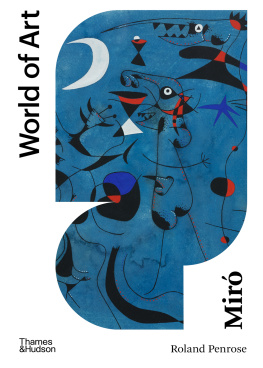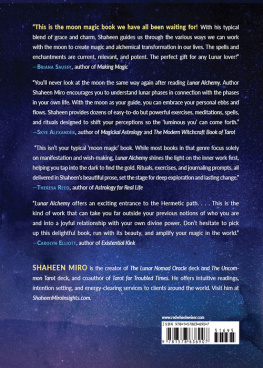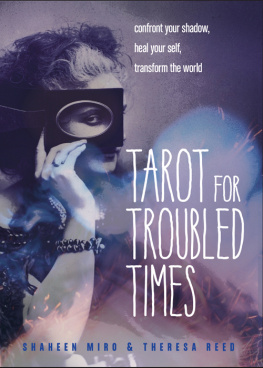
Victoria University of Wellington Press
PO Box 600 Wellington
New Zealand
vup.wgtn.ac.nz
Copyright Miro Bilbrough 2020
First published 2020
This book is copyright. Apart from any fair dealing for the purpose of private study, research, criticism or review, as permitted under the Copyright Act, no part may be reproduced by any process without the permission of the publishers.
The moral rights of the author have been asserted.
ISBN 9781776563128 (print)
ISBN 9781776563722 (EPUB)
ISBN 9781776563739 (Kindle)
A catalogue record is available at the National Library of New Zealand
Ebook conversion 2020 by meBooks
Contents
Part 1: My fathers house
Part 2: Nelson
Part 3: The Pines, Manaroa
Part 4: Modern world
Part 5: For the record
Mythologies
Notes
List of illustrations
Acknowledgements
One thing I know, I have an appetite for this man. He is muss-haired, beardy, wears a black oilskin raincoat inside the house and, despite being nameless to me now, is indisputably himself. I cant work him out. He takes his tea cold and clear as a tea-tree-coloured Australian creek. Is it because I have a crush on him that his taste for cold tea is a source of mystery and admiration, or is the cold tea the charismatic thing?
I am four, and there is something alchemical about hot dishes taken cold. A favourite, lonely thing is slicing cold boiled potato with a butter knife on the living-room windowsill, eating slippery-cool starch slice by slice, staring at the openwork of condensation on the windowpane and the weedy green beyond, while my parents marriage goes to the dogs in the next room.
In the five decades since, I have occasionally turned the coin of Cold Tea & Coat, his musky profile, and wondered if I invented him, a pilgrim or wanderer out of a Grimms fairy tale illustrated by Arthur Rackham. This early, mythic impression of maleness, scruffy but particular, imprints an archetype of the men I will encounter at my fathers house when I next live with him at fourteen, after a separation of seven years.
Built on a floodplain some fifty years previously, my fathers Floodhouse is a staging post for a band of hippies who like to break their back-and-forth around the country there. In the Manaroans, named after the remote bay in Pelorus Sound where their commune is based, my engagement with life will abruptly deepen. The sandy shallows of childhood drop, and my feet are, without warning, cycling ocean. I am fourteen and I am drowning and waving. Barely at the centre of my own story yet, I am at the periphery of those of some pretty interesting strangers. It doesnt matter that the Manaroans are just passing through; this only increases their savour, inviting me to develop their qualities further in the darkroom of my imagination.
My fathers house
1978
My father the teetotaller has an open-browed face, decent enough cheekbones, becalmed North Sea eyes that are often elsewhere, and a sudden lightbulb warmth. He wears a homespun skull cap when writing his exercise-book diary in beda kapok mattress or three dumped one atop the other to compensate for deformitiesin the Floodhouse box room.
Off the kitchen, daylight shuttered by a stand of frowning macrocarpa that run along the west side of the house, the box room is, true to title, full of semi-unpacked cardboard boxes and, supine in stacks and dumps, novels and books of Jung and Sufism bookmarked with the occasional job vacancy for an English teacher, clipped and mailed to my father by his own father, Samuel. This unlikely bedroomstudy is lined floor to ceiling with empty, whitewashed tongue-and-groove cupboards that stand over my father as he scribbles in bed. Their towering stance parallels the way his headmaster father once stood over him and psychically still does, prolonging my fathers adolescence into his thirties. Hes even retained the lined school exercise books of Sams watchfull, now, of the kind of uncensored interiority that my grandfather would find incomprehensible and obscene.
He likes a house of neglect, my father. He makes little open-air island-nests to feed and read in, to fantasise and hide out in, papery and grubby as those that mice make of shredded paper. More discreet are the actual mice occupying the vacant cupboards that marshall the untidy space.
The Wakamarina
Old farmhouses mingle with one-eyed gold miners shacks as the valley road ascends between fringes of yellow yarrow, pollen-reeking ragwort and floating micro-domes of Queen Annes lace. Eventually the thistle- and foxglove-spiked paddocks become numerate with remnant chimneys and the abandoned larders and gold mine shaftsthrillingly treacherous holes that suck you in by the anklesof long-dead miners and other nineteenth-century chancers.
Gentility passed briefly through but did not stop in the Wakamarina Valley. The late Miss Young, a piano teacher and for a time my fathers landlady, was one exception. Up the road and around the bend from the Floodhouse, Miss Youngs camellia-fronted villa is now empty. At the end of his marriage, my father stopped here to collect his wits. A few months, and he was gone again. On to the Floodhouse, only a mile down the road but cheaper and deeper in dereliction. Now the gloom-speckled wallpaper, the unattended receiver of Miss Youngs party phone, and the lace-frosted windows and fretted wooden eaves that face the valley road are the inheritance of those other lace-makers, spiders. I know this because I have pressed my face to the glass of these old-lady rooms, entered through an unlocked door and, winding the weighty arm of the phone, met the silence of disconnection.
Hidden from but just below the road, the Wakamarina River makes a gladed and pellucid descent in shades of pounamu green, freezing to a fault and sacred to that contemplative high diver with flashing azure wings, the ktare or kingfisher.
Off road I find other domestic kingdoms every bit as antic and soot-smutted as my fathers Floodhouse. Noelenes house is one of these: empurpled by morning glory on the outside; yellowed on the inside with unrefreshed flypapers, which do nothing to cull the flies that tail you obsessively as soon as you enter. Smelling of mouse, stove and lard-coated frying pans, so dim the lack of light is a substance: Noelenes. Id say this is the smell of dirt poor, but not exclusively, for I encounter it later in the kitchen of the commune landlords, Mick and Edie. The gummy odour of material neglect, then.
My father has come to buy a dozen chooks eggs and brought me sociably along. He offers as barter buttercrunch lettuce from his garden or seconds from his cowshed pottery on the highway. The chooks dance beneath the greasy hem of the kitchen table and flap between Noelenes rooms. Theres a warm-skinned man in gumboots inside the unlit kitchen who ambles off to fossick elsewhere, mumbling shyly as he leaves and we enter. Noelene keeps us moving. I glimpse a flame-haired, platform-soled daughter in oblique transit between rooms.












